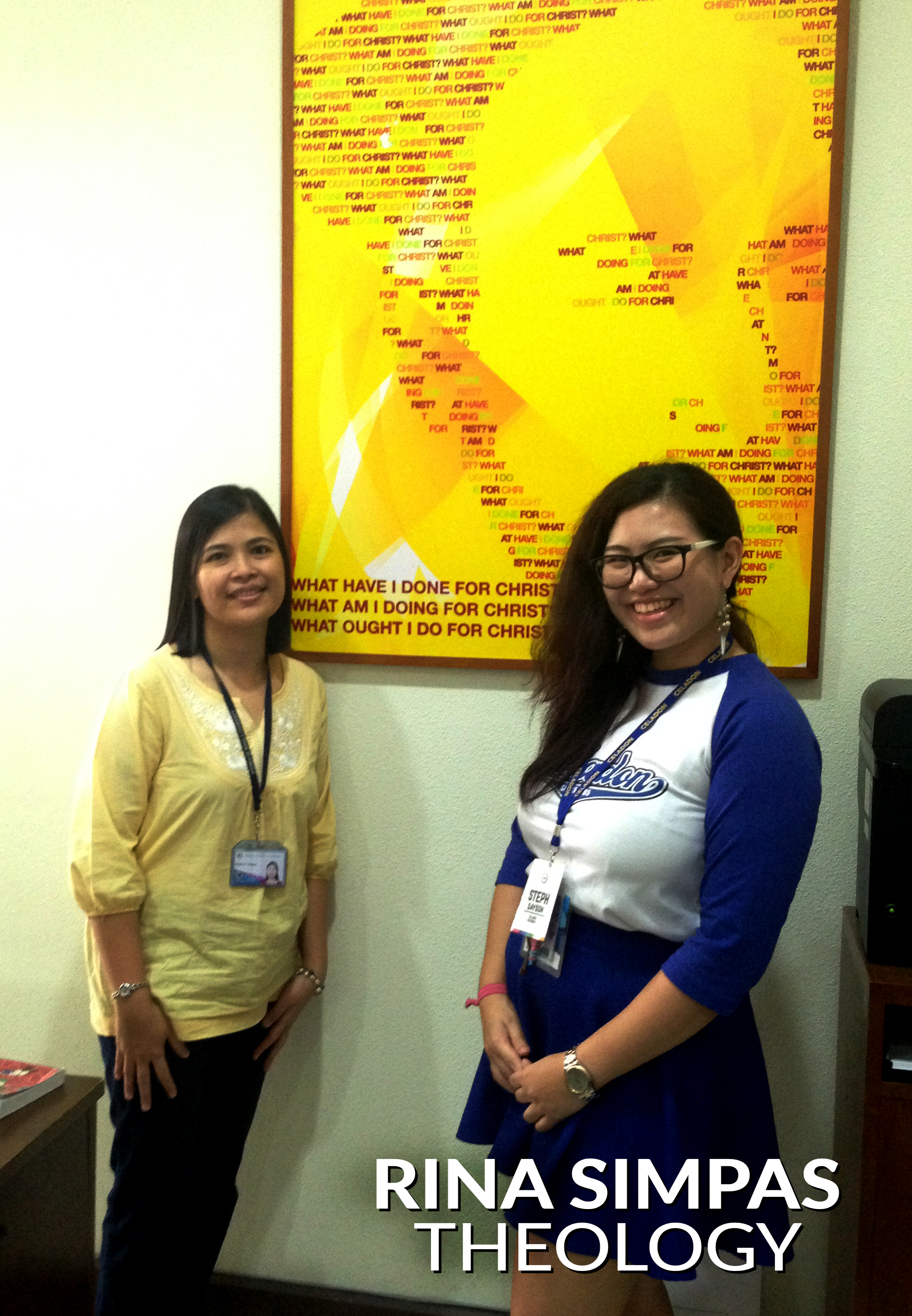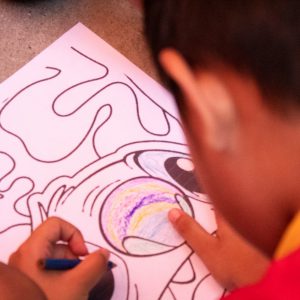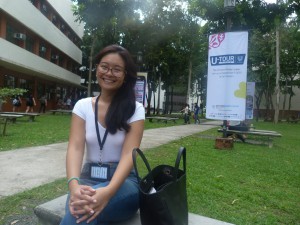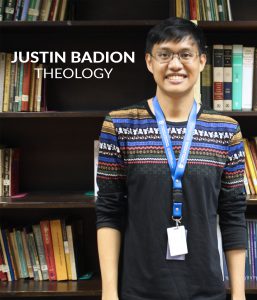Celadon President Stephanie Sayson (SS) interviewed Theology professor Ms. Rina Simpas (RS) for Teachers’ Appreciation Week this year. Below is a transcript of their interesting interview.
Stephanie Sayson (SS): What inspired you to be a professor in the Ateneo?
Rina Simpas (RS): What inspired me? Actually someone invited me if I was interested to teach, and I said yes. When I was younger, I wanted to teach [Theology], but given the full-time work in Campus Ministry which I also loved doing, it was hard to do both. [This was the case] until the time I was ready to say [that] maybe I can give it a try and see if it will work—and it worked. I started teaching since 2009.
SS: Ever since when were you in campus ministry?
RS: I’ve been in the campus ministry for 15 years. I started [from] 1996–1999. Then, I left the country for five years and did campus ministry in the US. When I [came back] in 2004, I was invited to return to campus ministry here.
SS: I was thinking [being a professor] would be [like] your acads, then campus ministry would be like your org. And you’re more focused on orgs.
RS: (laughs) How fun, ‘di ba? (How fun, right?) Both areas are really life-giving experiences. It’s a vocation.
SS: What do you like most about teaching?
RS: Students, [particularly,] interacting with students. Whether they are aware of it or not, they’re seeking for something more. I can sense that they’re searching for greater meaning, for purpose in life. From my own experience, Theology [and Philosophy have] helped me a lot. These could be the basis for responding to [what] you’re looking for.
SS: How does that differ from what you like most about doing Faith Formation work? You mentioned [that] you [wanted] to continue with teaching because of the students. You also have your main focus which is OCM (Office of Campus Ministry) work. How do they differ or how are they similar?
RS: It differs in the sense that with campus ministry, it’s really voluntary, particularly retreats. Those are really precious moments. Even our students value that experience a lot. Iba kasi talaga yung lalim. (The depth is really different.) With Theology, it’s a classroom setting, [and] it’s structured. There are grades to be given, papers to be checked. I’m happy reading the reflections of my students. It’s challenging, but it’s alright.
[When it comes to] similarities, I see both as vocation. [They are vocations with] God, [with] faith as the common ground. [What] brings me great joy is when students talk to me and realize that God is not far, far out there; God is so much part of one’s life, and this God is really the horizon of meaning and life.
SS: If there’s one advice you can give your students, what will it be?
RS: Embrace the truth that you are loved. Live [and] operate from that experience. I’m not saying that everyone has a happy life. We know that some students have to deal with very difficult situations [and even] painful experiences in the family. That’s part of our reality, but hopefully, once they get in touch with their core, they come to realize that the experience of love is very fundamental. It’s that primordial love that’s freely given to us from the very start, even before we start doing good.
SS: Is that why you really like focusing on TH131 instead of the other [Theology subjects]?
RS: Yes, when I moved to TH131, I felt like I was able to connect with where the students are. This is the stage where you ask questions about relationships, love, sexuality [and] family life.
SS: Yes, it’s the most relatable theology so far, actually.
RS: Wait ‘til you get to [TH]141! (laughs)
SS: It’s nice that you follow your two vocations, kasi I hate it when people ask, “Ano ba ang gusto mong gawin sa buhay mo?” (“What do you want to do with your life?”) If you say, “I don’t know. I want to do a lot of things,” most of the time you get condemned for it. I think that’s a common thing right now. If you want to do a lot of things, people [tend to] tag you as confused. How do you want to address that? You went to address both your vocations, which is really great. It inspires me and hopefully a lot of your students.
RS: For college students, it’s the time of your life when you really explore different areas. There are students who sign up for eight [or] nine orgs—I don’t know how they’re able to handle [all] that. Later on, they focus on three [or] four. When you start working, you become passionate about many different things, but then later on, [you also] come to realize [that] as you know yourself more, as you know society more, as you know your God more, a certain focus will come. It will take on one focus but perhaps with different manifestations. In my own case, [this] passion is sharing the faith to others through ministry, spiritual formation [and] theology, which I see as allies rather than rivals. They’re so connected with each other. Trying to discover your calling, you become [closer to being] your authentic self. At the same time, [you] also become more able to respond to a certain hunger that is out there. Both [are done] as an act of faith.
SS: As a formator, as a teacher, it’s usually you who is imparting something to your students. In that process, you learn as well as from your students. What is the most important thing that your students have imparted to you?
RS: What I learned from my students is to value each one’s uniqueness. Each one has a unique background [and] story to tell. Therefore, each one [is] also calling for a particular kind of response. [The students] have such great dreams and great potential. They are very gifted people. There certainly is hope in the midst of this crazy world that we are in. Hindi naman ata nawawala ang problema. (Problems never cease to exist.) But what gives me hope are the energy, the passion, and the calling of these young people. To me, it’s [a] gift and [a] privilege. There’s so much to be thankful for—that’s what I learned from my students. There’s so much to be thankful for especially when students begin to open up, because I get a glimpse of how life is unfolding for them. Given the intricacies and complexities of their stories, they are able to find solace in people who care for them and in their faith.
Follow the Teachers’ Appreciation Week page, to know more about professors in Ateneo de Manila!
Check out these professors in Teachers’ Appreciation Week:




